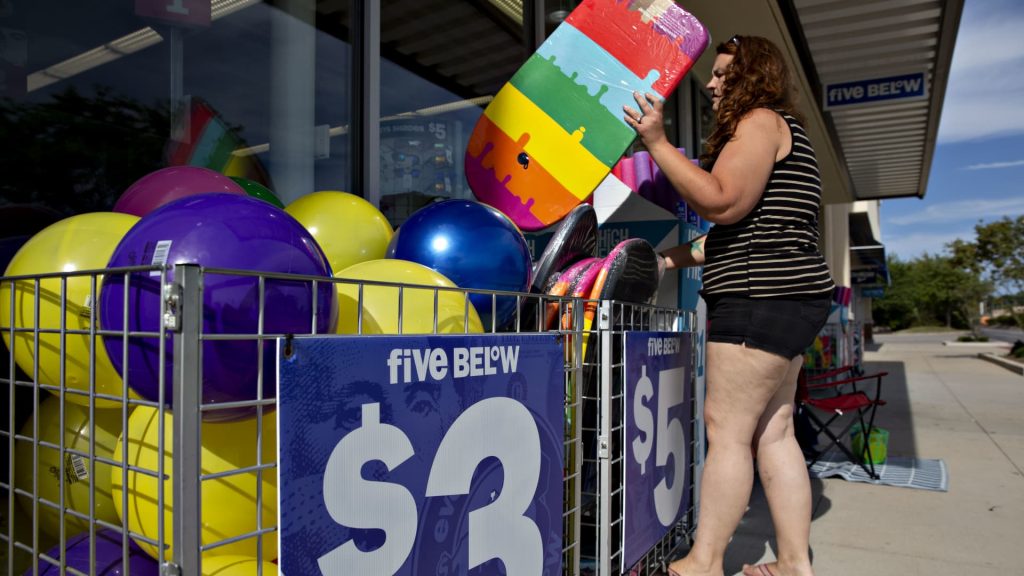While inflation is showing signs of easing, consumers in the country may still be feeling its effects for quite some time, according to Joel Anderson, CEO of discount retailer Five Below. The executive sees underperformance particularly in the lower-income demographic.
“The lower-end customer is really being stretched,” Anderson said on an earnings call with analysts Wednesday. “We’ve got to deliver value, and we’ve got to really display that in how we go to market, and when you walk in the store, what you see. But all that’s in flight right now, and [we] expect to see some of those changes improve by back half of the year.”
Five Below issued soft revenue guidance for the second quarter and the full year. Revenue for the first quarter also came in below expectations.
Shares plummeted around 11% Thursday, hitting a new 52-week low during the trading session. The retailer is down more than 45% in 2024.
“Consumers were more discerning with their dollars, increasingly buying to need,” Anderson added. The types of products they’ve been purchasing reflect this, he added, noting that consumers bought more in the company’s “consumable” categories such as candy, food and beverage, beauty and health and beauty aids.
The CEO also noted that Five Beyond — the company’s in-store shop that sells some products for more than $5 — performed the best among its lower-income household stores. This, he said, indicates that when consumers see the value of products, the more they have to “stretch their dollar.”
Though there has been some indication that aspects of the U.S. economy are improving, consumer sentiment has been lagging. In fact, consumer sentiment dropped more than 10% in May, according to the University of Michigan Survey of Consumers. Not only that, more than half of Americans falsely believe the country is in an economic recession.
“The quarter solidified that consumers are feeling the impact of multiple years of inflation across many key categories, such as food, fuel and rent, and are therefore far more deliberate with their discretionary dollars,” Anderson said.
Read the full article here













